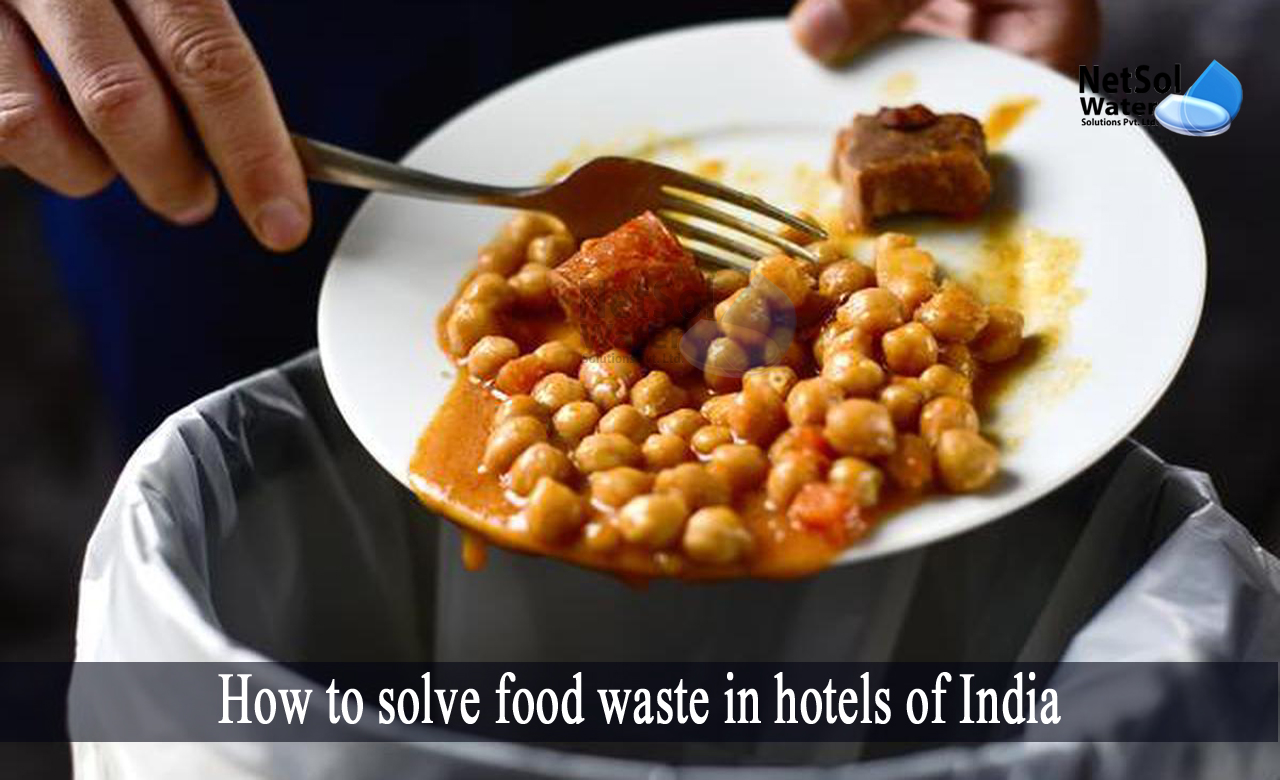How to solve food waste in hotels of India?
According to the Food and Agriculture Organization of India, up to one-third of all food is thrown or ruined before consumption. This stands in contrast to the 800 million people worldwide, who do not have adequate food. Food accounts for 19 % of all waste discovered in landfills, which contributes to the generation of greenhouse gases.
Hotels are not exempt from the problem of food waste. Only little more than half of the food served at a hotel buffet is consumed, not only contributing to waste but also eroding the foodservice industries, already thin profit margins by throwing away the other 40% of food. But, have you ever thought about how this food waste can be solved in hotels?
1. Perform a Food Waste Audit
When tracking food waste, the most important element to consider is how much food is wasted. This will provide management a better sense of where the most waste is coming from.
There are two ways to keep track of this information.
A food log system records what is thrown out, why it is thrown away, and how much is wasted.
A traffic log system keeps a daily account of how much traffic the hotel received, and other useful information for planning the next year's visitor traffic.
2. Do not waste ingredients before they are prepared
In order to maximize the shelf life of perishable products, evaluate inventory to see if food is sitting around in storage for too long. Train employees to be waste-conscious and efficient, and develop a food waste strategy with the assistance of the hotel's chef to reduce waste, through methods such as repurposing ingredients.
3. Develop a strategy for leftovers
Staff observations should be used to keep track of the portion amounts supplied to customers. Control customer expectations by preparing and serving dishes exactly as they appear on the menu.
Keep track of how popular each meal is and cook appropriately. Encourage customers to take any leftover food home with them. Consider providing employees dinners or giving the remaining food.
4. Raise awareness
Educate the hotel's staff on the difficulties of executing a food waste policy. Make the staff aware of the issue of food waste, and adopt measures to modify the way things are done in the kitchen.
Teamwork is essential for putting a strategy into action. Furthermore, given the high turnover rates in the foodservice industry, it is critical to have food waste management training in place for new employees.
5. Composting
Hotels can compost leftover food on-site or collaborate with a composting partner. Plan regular check-ins to monitor food waste, and make any necessary changes.
6. Converting food waste
Netsol Water food waste converter assists in composting leftover food materials, for people who have less amount of outside space, but do not want to devote a lot of time in the process.
Conclusion
The restaurant business provides a unique set of obstacles when operating on a large scale, and a number of variables are now impeding waste management.
Barriers include a lack of recycling options, management or building limits, transportation constraints, food safety concerns about collecting and storage, and liability concerns.In fact, many reports identify a wide range of environmental, social, and economic elements, which exacerbate the situation, with each organization, chain, and area dealing with a unique set of issues.
The good news is that the industry is starting to catch on, and restaurant owners, chefs, and waiters are finding answers to the question, of how to reduce food waste in restaurants and hotels, with the support of a variety of groups and companies.
How can we help?
Netsol Water offer organic waste converters and food waste converters, to help reduce your food waste in hotels, restaurants as well as other residential areas.
Our goal is to simplify hotel waste management practices, in order to reduce organic waste going to landfills. We assist organizations of all sizes in identifying and assessing the requirements, unique to their operations.
Following the implementation of a waste management plan, we offer services to assist you in recycling and donating food through periodic and on-demand pickups, designed to ensure transparency and accountability through meaningful diversion indicators.



